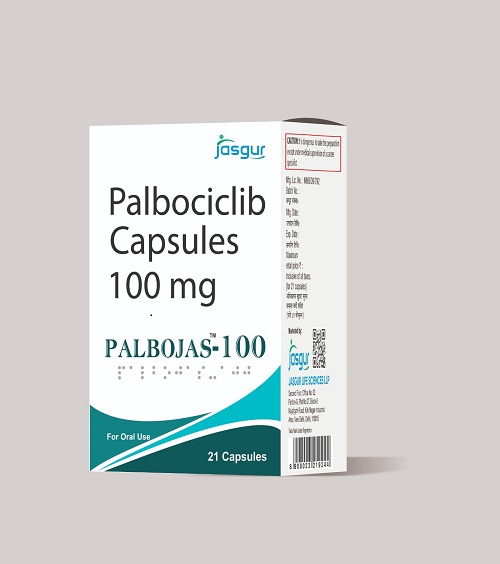Introduction to Cancer Treatment
Cancer remains one of the most formidable health challenges of our time, affecting millions worldwide. Finding the best anti-cancer medicines is crucial for patients seeking effective treatment options. As of 2025, the landscape of cancer therapies has evolved significantly, with new medications and treatment strategies emerging to enhance patient outcomes and survival rates. This blog will delve into the latest advancements, types of medications, and the importance of personalized treatment in the quest for the best anti-cancer medicines.
Understanding Cancer and Its Treatment
Cancer is not a single disease but a collection of related diseases that can affect any part of the body. It occurs when cells begin to grow uncontrollably, often forming tumors. The search for the best anti-cancer medicines is essential in managing these diseases and improving patients’ quality of life. Treatment options vary widely, including surgery, radiation, chemotherapy, immunotherapy, and targeted therapies.
Types of Anti-Cancer Medicines
- Chemotherapy Agents: Chemotherapy has been a cornerstone of cancer treatment for decades. The best anti-cancer medicines in this category work by targeting rapidly dividing cells. Key agents include:
- Cisplatin: Effective against various cancers, including testicular and bladder cancer.
- Doxorubicin: Commonly used for breast cancer and leukemia.
- Targeted Therapy: Targeted therapies focus on specific molecular targets associated with cancer. They are designed to block the growth and spread of cancer by interfering with specific molecules involved in tumor growth. Notable examples of the best anti-cancer medicines in this category are:
- Trastuzumab (Herceptin): Targets HER2-positive breast cancer.
- Imatinib (Gleevec): Used for chronic myeloid leukemia and gastrointestinal stromal tumors.
- Immunotherapy: Immunotherapy harnesses the body’s immune system to fight cancer. This innovative approach has led to the development of some of the best anti-cancer medicines available today, such as:
- Nivolumab (Opdivo): A checkpoint inhibitor for melanoma and lung cancer.
- Pembrolizumab (Keytruda): Effective against various types of cancer, including head and neck cancers.
- Hormonal Therapy: Hormonal therapies are used primarily for cancers that are hormone-sensitive, such as breast and prostate cancer. These therapies can block the body’s natural hormones or interfere with hormone action. Examples of best anti-cancer medicines in this area include:
- Tamoxifen: Used for estrogen receptor-positive breast cancer.
- Leuprolide: A GnRH agonist for prostate cancer.
- Radiopharmaceuticals: These are radioactive compounds used in the treatment of certain types of cancer, particularly bone metastases. They are among the best anti-cancer medicines for specific cases. Examples include:
- Radium-223: Used for treating metastatic prostate cancer.
- Iodine-131: Primarily for thyroid cancer.
Factors Influencing the Choice of Anti-Cancer Medicines
Choosing the best anti-cancer medicines depends on various factors, including:
- Cancer Type: Different cancers respond to different treatments.
- Stage of Cancer: Early-stage cancers may require different therapies compared to advanced-stage cancers.
- Genetic Markers: Personalized medicine is increasingly important; genetic testing can identify the most effective treatments.
- Patient Health: Overall health and comorbid conditions can impact treatment decisions.
The Role of Personalized Medicine in Cancer Treatment
In recent years, the concept of personalized medicine has gained momentum in oncology. This approach tailors treatment plans based on individual patient characteristics, including genetic makeup, tumor biology, and lifestyle factors. By utilizing advanced genomic testing, oncologists can identify the best anti-cancer medicines for each patient, resulting in more effective and targeted therapies.
The Importance of Clinical Trials
Clinical trials play a vital role in discovering new treatments and improving existing ones. Participating in clinical trials offers patients access to the best anti-cancer medicines currently under investigation. These trials are crucial for evaluating the safety and efficacy of novel therapies and can significantly contribute to advancing cancer treatment.
Side Effects and Management
While the best anti-cancer medicines can be effective, they often come with side effects, which can vary based on the type of medication. Common side effects include nausea, fatigue, hair loss, and increased susceptibility to infections. Managing these side effects is crucial for maintaining the quality of life during treatment. Patients should communicate openly with their healthcare providers about any side effects they experience, as there are often supportive care options available.
The Future of Anti-Cancer Medicines
The future of cancer treatment looks promising, with ongoing research leading to the development of innovative therapies. Emerging areas of focus include:
- CAR-T Cell Therapy: A form of immunotherapy that modifies a patient’s T cells to better attack cancer cells.
- Combination Therapies: Using multiple treatment modalities may enhance effectiveness and reduce resistance.
- Nanomedicine: The use of nanotechnology to deliver drugs directly to cancer cells, minimizing damage to healthy tissue.
As research progresses, the best anti-cancer medicines in the future will likely be more effective and have fewer side effects, allowing for better patient outcomes.
Conclusion
In conclusion, the quest for the best anti-cancer medicines is an ongoing journey shaped by advancements in research and technology. With the variety of treatment options available today, patients have a range of effective therapies to consider. Understanding the different types of anti-cancer medicines, the factors influencing treatment decisions, and the importance of personalized medicine can empower patients to take an active role in their cancer treatment journey.
Call to Action
If you or someone you know is facing a cancer diagnosis, it is essential to stay informed about the best anti-cancer medicines available. Consult with healthcare providers, consider participating in clinical trials, and explore personalized treatment options. Together, we can work towards a future where cancer is no longer a life-threatening disease but a manageable condition.

best anti-cancer medicines








